20 Secrets Retailers Don't Want You to Know
As a consumer you wield more power than you ever imagined.

Fact: there are deals and discounts lurking in just about every single retail location in America—regardless of whether it's a supermarket, a department store, or a big-box shop. And the cashiers and salespeople are given far more leverage to negotiate and reduce prices than you ever imagined. To win those deals? You simply need to know the game. With that in mind, here are 20 tricks and tips that all savvy shoppers can use to cut the cost of buying just about anything.
1
You can get online deals in the actual store.

We've all heard of "showrooming." It's when you stroll into a store to check the price and then search online for a better deal. Here's another trick: show the manager your better deal on your smartphone and they'll often match it on the spot.
2
Politeness gets you far.
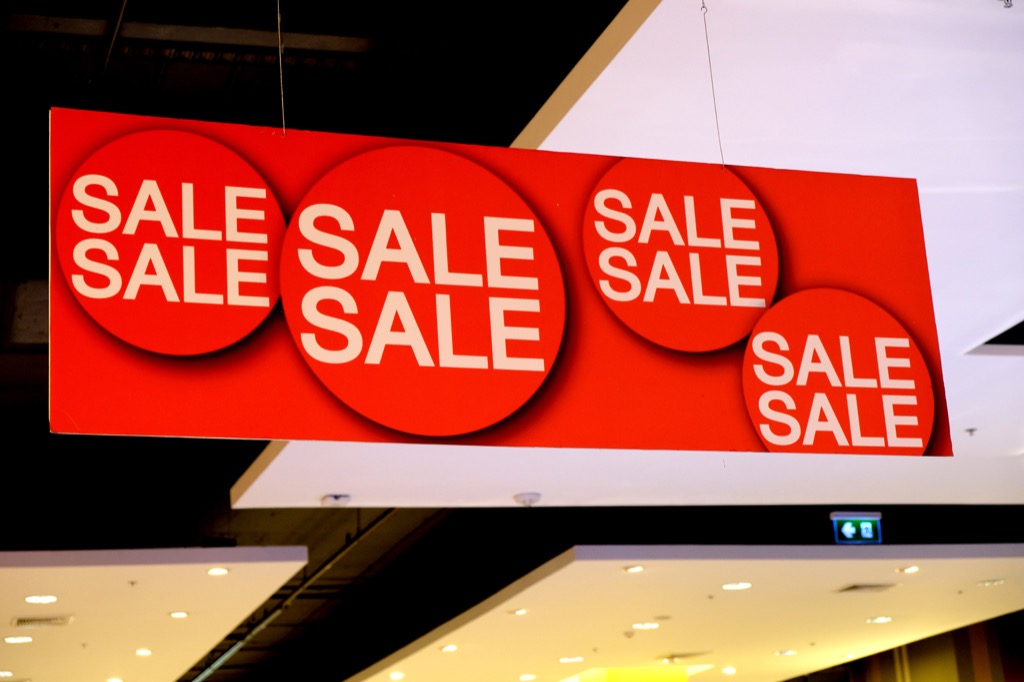
Many major mall stores offer discounts to newsletter subscribers or people in their database. Even if you're not in their database, simply ask the clerk at the register if there are any deals live right now. If you smile nicely, they might provide you with the very same coupon (usually there are piles of them in the drawers below the register).
3
Floor prices aren't always up to date.
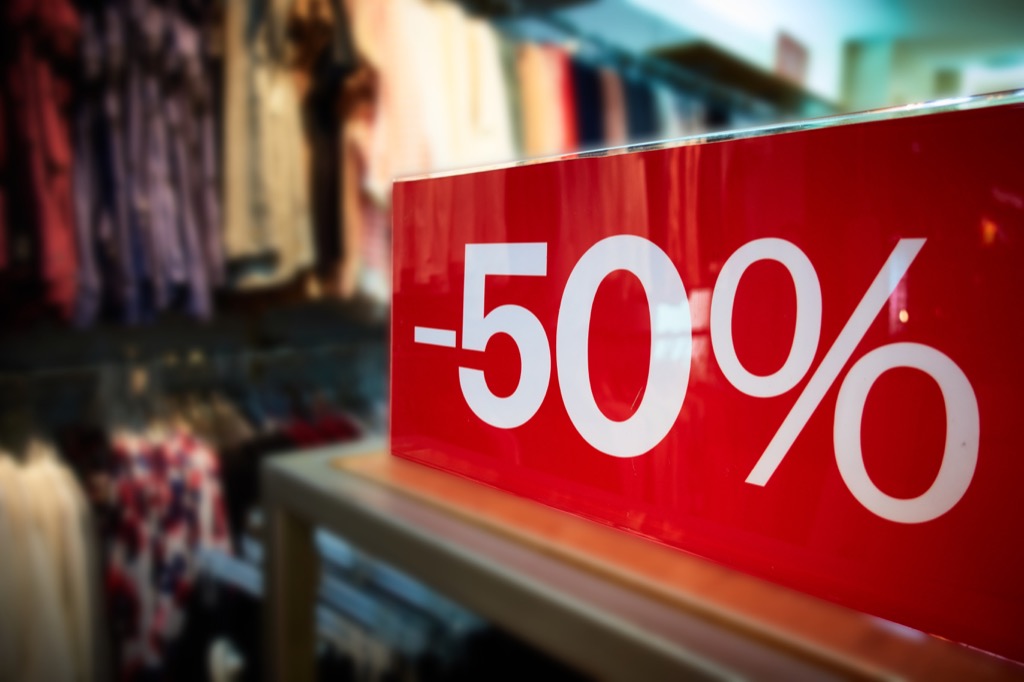
Don't assume the price on a shelf or an item is up to date: discounts are so constant these days that they often outpace staffers' ability to keep up. If you see a shirt or a pair of shoes on promotion, take it to the register and ask someone to check the current price: you could end up finding out that $49.99 shirt's current price is $12.99.
4
Price displays are often a trick.
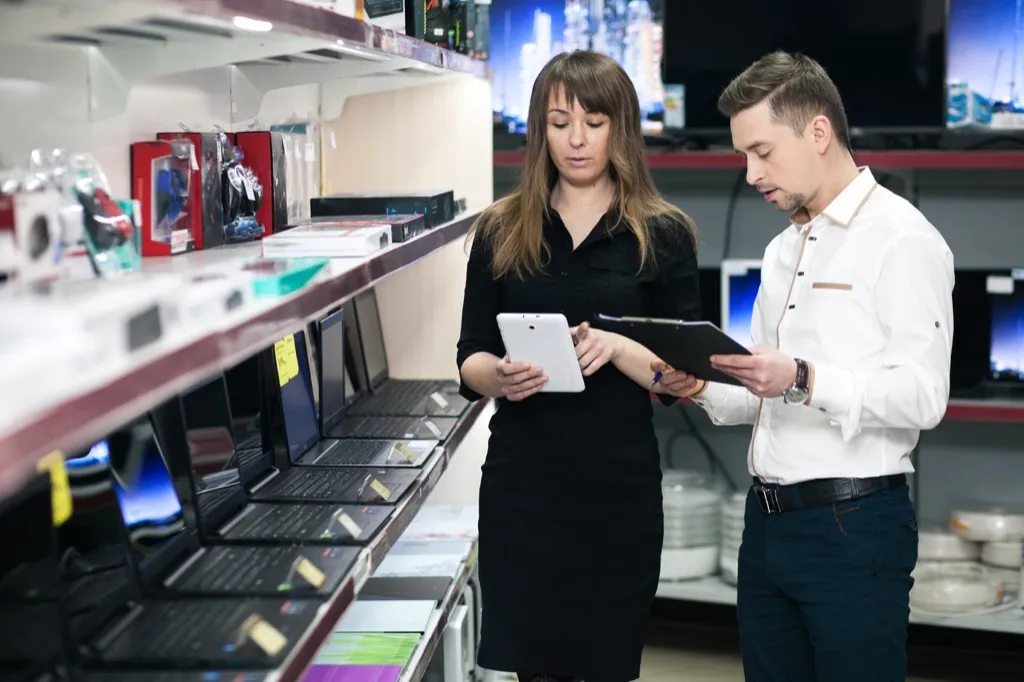
Don't be fooled by "Goldilocks" pricing, when you find three similar products displayed together. Here's the thing: the shop is aiming to steer you to the middle-priced model, the one that's "just right" (duh, the nickname), which they'll be selling at the highest possible margins. My advice? Opt for the lowest priced one. It won't have all of the features of the other two, but it will be the best bang for your buck. (Note: Goldilocks pricing is often used in bigger appliance and electronics stores.)
5
You can get VIP treatment.
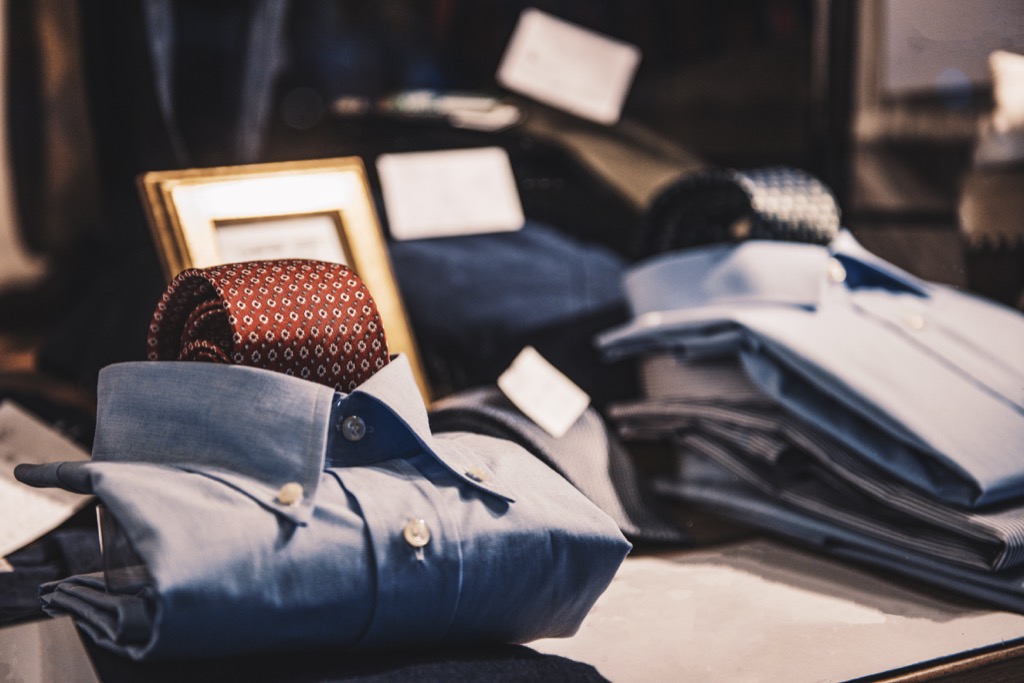
"Clienteling" is retail lingo for "VIP treatment," in which sales associates at high-end stores show preferential treatment, such as inviting them to so-called pre-sales that offer 30-40 percent off prices a week or so before the standard sale kicks in. Befriend a sales associate at any store you visit regularly. Since most work on commission they're keen to build the relationship and secure as much business from you as possible. It's a win-win for everyone.
6
Bigger means cheaper.
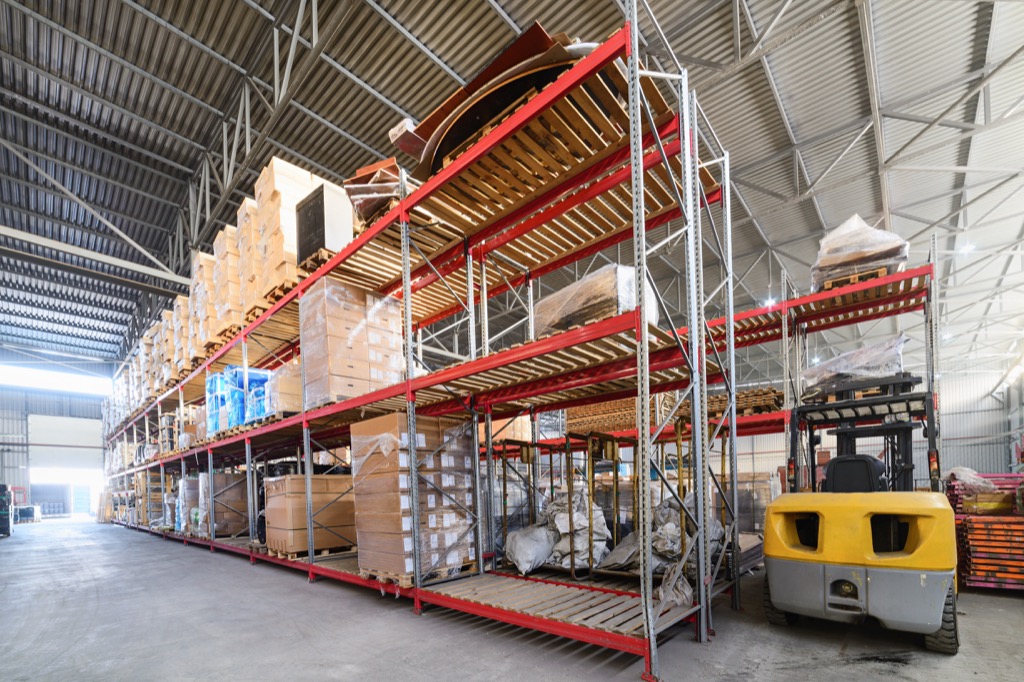
Remember: the bulkier the item, the more floor space it takes up, which means that a store will be even more amenable to haggling because they're simply so keen to get rid of it.
7
Non-perishables are prone to price hikes.

Eagle-eyed shoppers usually know when milk or bread or produce is wildly overpriced. But bug spray? Check to make sure you're not getting ripped off. Stores often hike those prices assuming you won't notice.
8
Your receipt is a trove of deals.

Literally turn over every receipt you receive—like some shopping Indiana Jones—and you'll find all sorts of treasure. So-called "Catalina coupons," generated automatically in response to whatever you've bought, are often lurking there on the back of your receipt! So don't throw it out.
9
Outlet malls try to trick you.
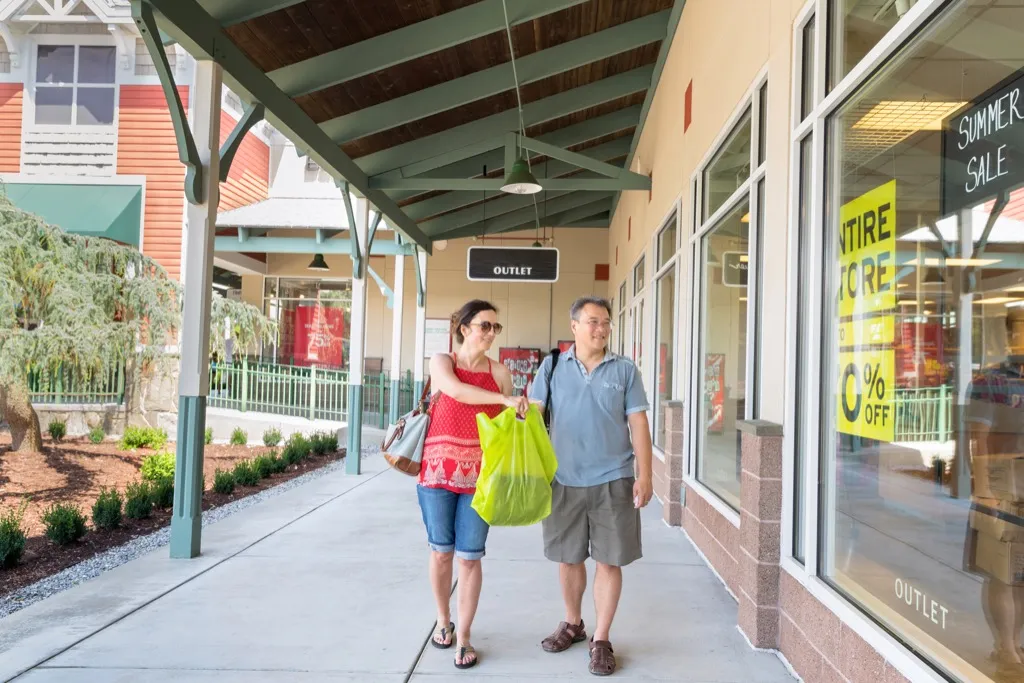
At an outlet mall, avoid anything marked "Outlet Exclusive." That's a sneaky term meaning, "Never Sold at Full Price." Instead, buy the better goods that are marked down.
10
Outlet mall price tags aren't always what they seem.

Whenever you see a price tag at an outlet mall, be cautious. Most feature two prices: a high one and then the discount one. If the higher price is flagged anything other than "ORIGINAL PRICE" (two red flags are "COMPARED TO" or "RETAIL VALUE"), you're probably holding merchandise made especially for the outlet.
11
Floor models are deals sitting in plain sight.

Product lifecycles, especially in clothing stores, are so much shorter these days than in the past, so floor models are sitting out for less and less time, making them less vulnerable to public handling and therefore more likely to be in great condition. If no floor model is available, ask them about the clothes the mannequin is wearing in the store window. Chances are the box for that cardigan is long since thrown out. Use that missing packaging as leverage for a haggled discount.
12
Patience isn't just a virtue. It's your friend.
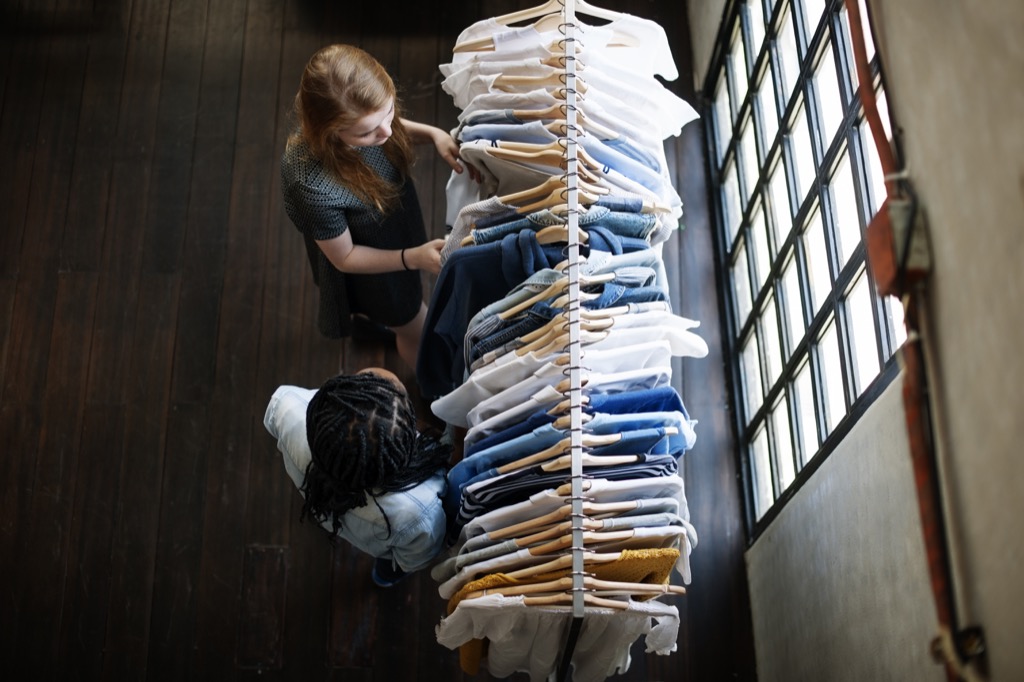
Clothes in most boutiques and specialty stores will linger on the racks for around six weeks after they arrive. Keep track of that must-have pair of pants until that 42-day window is reached, and then plan a trip to the mall after work on a Thursday—that's when the weekend's sales are usually first activated.
13
You can use an employee discount.
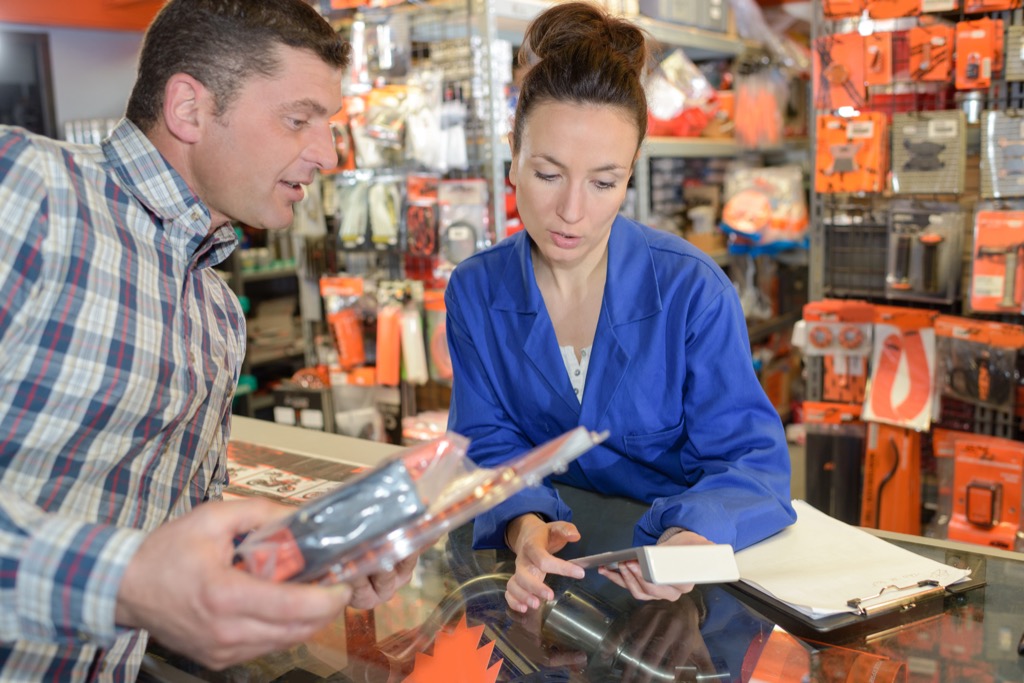
Increasingly, big name stores permit employees to offer a spontaneous discount if asked. One major home improvement store, for example, allows staffers to take $50 off a purchase to help close a sale. After all, this is a simple, cost-effective way of keeping a customer from defecting to a competitor at the final point of sale. If in doubt, find a floor supervisor and just ask. And remember: Smile.
14
There is a magic phrase.

It's simple: "Under what circumstances could I secure a discount for this item?" It's open-ended and simply can't be dismissed with a yes or no. (You're welcome.)
15
A big sign does not mean a big sale.

Don't assume that items on prominent display are actually on promotion. Take the supermarket aisle. Those floating islands of deals are the hottest selling spots in the entire store, where product sell-through can increase up to one third. For that reason, retailers will actually often put sluggish-selling stock there to clear overstock without cutting prices.
16
Say "8-6-7-5-3-0-9."

Yes, seriously. That was Jenny's number from Tommy Tutone's 1980s hit. It's also a handy way to earn member discounts at stores where you don't—or don't want to have—a rewards card. Since we all hate telemarketers, it's the most common fake number given to store memberships for discounts.
Now, this isn't the most honest tactic, but it works. If a cashier asks for your member number to earn an insider discount, simply tack on the local area code to 867-5309 and take home your deal.
17
You can haggle on "sharp pricing."

Research has shown that shoppers are less likely to haggle on items that are sold using a technique known as sharp pricing. In other words, if the tag on that car is $7,429 instead of $7,500, you're less likely to haggle, as it feels like a more calculated sum set in stone. Don't be fooled: you can haggle on both.
18
You have the leverage of future business.

Give the store an incentive to negotiate with you. Buying a car? Promise that you'll always come back to the same dealer for servicing. Buying a shirt? Say you need a regular supply for your work wardrobe. If a transaction seems like the first in a long-term relationship, the seller's far likelier to cave and offer a deal.
19
Most companies offer price matching.
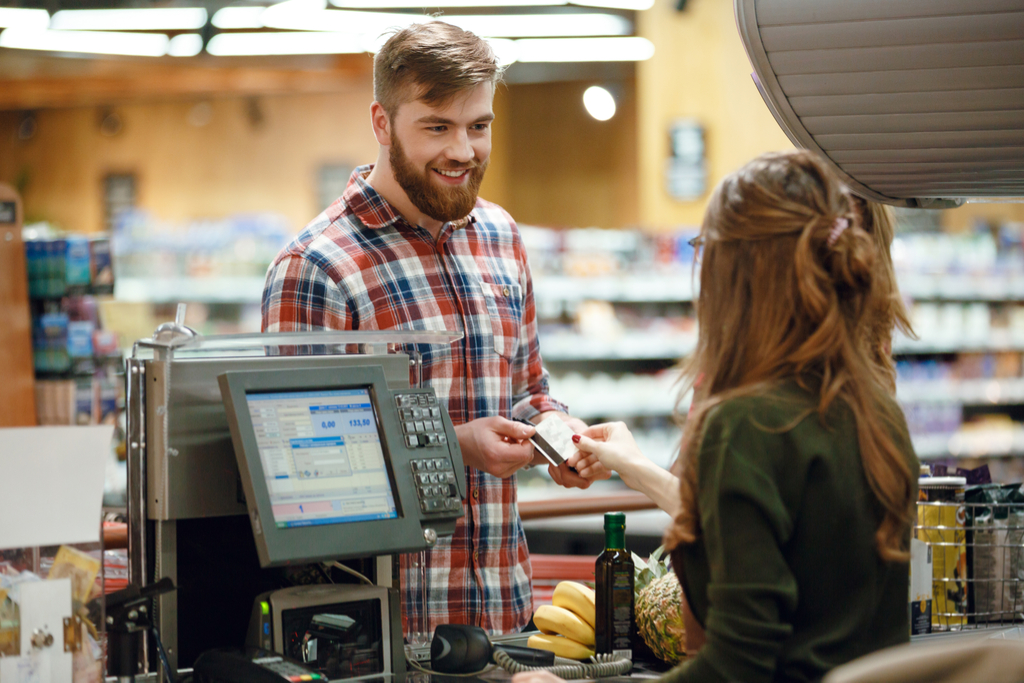
If an item you love is only in stock at Best Buy but happens to be $20 cheaper on Amazon, simply tell the cashier at Best Buy about this discrepancy when you check out. Though it's not blatantly advertised, major retailers including Best Buy offer price match guarantees in order to ensure that you're getting the best price possible while still doing business at their establishment.
20
Many giant retailers have discount offshoots.
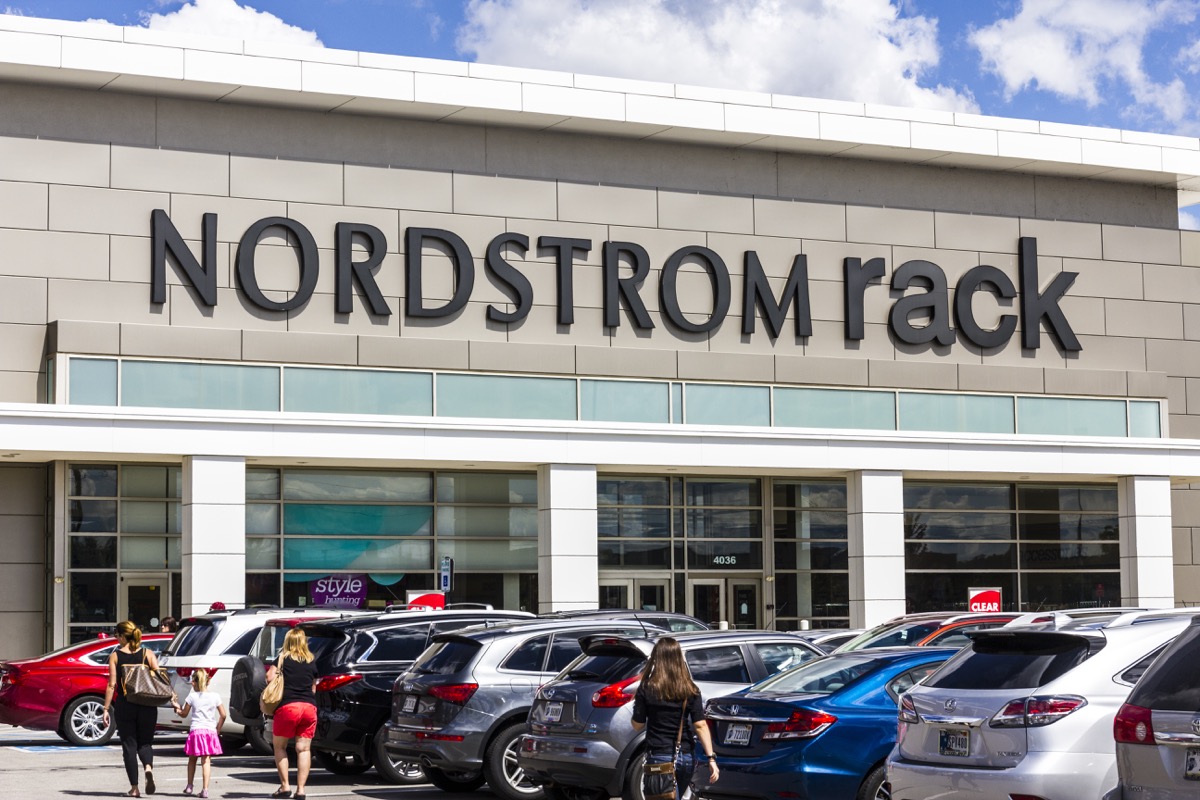
There's no need to pay full price for Valentino or D&G at a department store like Saks or Barney's. Believe it or not, these retailers—as well as other high-end ones like Nordstrom and Neiman Marcus—have offshoots specifically devoted to selling the same items that their parent stores do, but at a discount.
And if you wait until sale season to do your designer shopping, you might just score some serious savings at these stores—we're talking 90 percent off of retail on brands like Prada that almost never go on sale.
Mark Ellwood is a New York-based journalist and author of Bargain Fever: How to Shop in a Discounted World.
For more advice on living your best life, follow us on Facebook now!





















